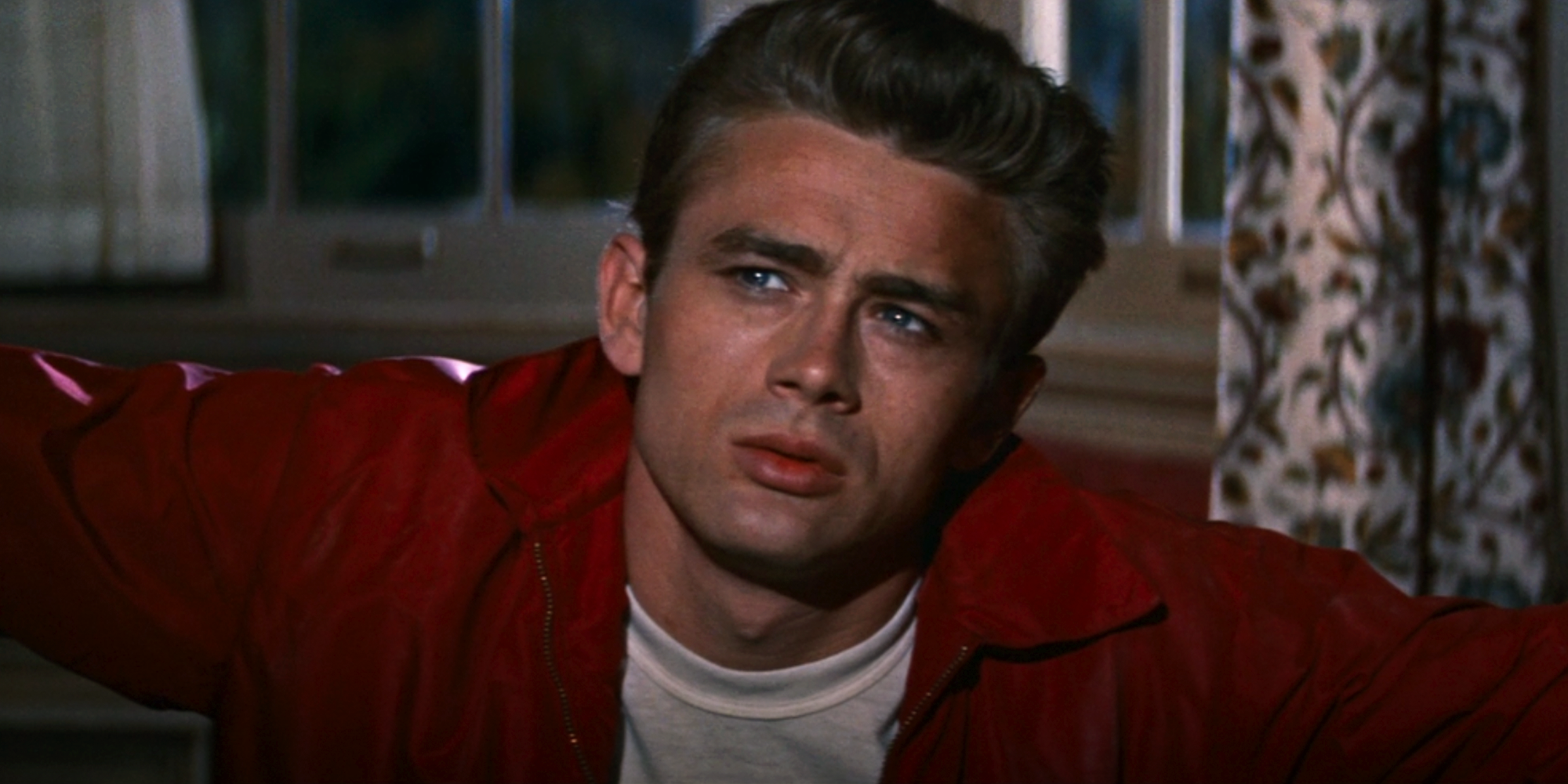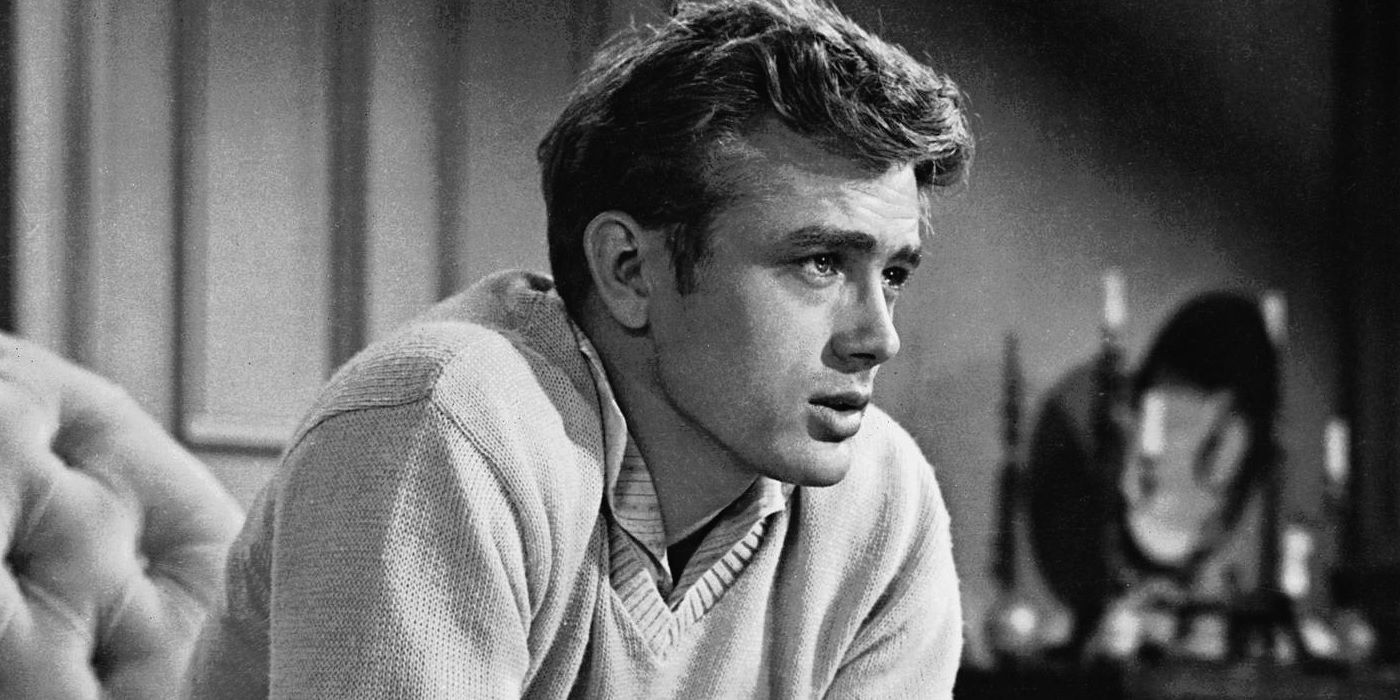Iconic 1950s actor James Dean is one of the most recognizable faces ever to grace Hollywood, despite only starring in three movies in his shockingly short career. The rebellious actor died at the age of 24 after he, a lover of professional car racing, took a corner of a California highway too quickly in October of 1955 and collided with another vehicle. Since then, the movie star’s face, signature red jacket, and overall likeness have stood as a symbol for the Golden Age of Hollywood – a more than impressive feat for a man who was only in the public eye for one year.
Akin to modern actors like Leonardo DiCaprio or Timothee Chalamet, Dean appeared in bit parts and theater productions in the early 1950s until he was cast in his first lead role, Elia Kazan’s adaptation of East of Eden. The drama retold the biblical story of Cain and Abel, with Dean playing a troubled teen seeking his father’s love and approval. Next, Dean was immortalized as Jim Stark, a troubled Juvenile delinquent in the classic teen drama Rebel Without A Cause. Finally, Dean’s career concluded with George Stevens’ Giant, a sprawling drama about a cattle ranching empire in Texas. He played the role of Jett Rink, a farmhand whose life unravels when he strikes oil.
Dean stood out at the time because he had studied at the highly regarded Actor’s Studio in New York City, where he learned the art of method acting under Lee Strasberg. Taught to get into the mind of his characters and use past traumas to unlock raw emotion, Dean’s acting style was revolutionary. Along with two-time Oscar winner Marlon Brando and Montgomery Clift, Dean was among the first to embrace this approach and give more realistic and truthful performances.
At the same time, teenagers were not a represented market, with producers believing anything to do with that demographic should be reserved for cheap B-movies. Despite being in his early 20s, Dean’s earnest treatment of teenage angst and confusion was a cinematic breakthrough. Happening at the same time as television, rock n’ roll, and unprecedented stability for the American middle class, the actor’s image helped usher in the dawn of teen culture.
Scholars and co-stars have suggested the actor suffered from mental illness, noting his troubled childhood, loss of his mother, and apparent closeted sexuality. The inner conflicts within him seemingly made for a complex star looking for an outlet to work out his frustrations. Dean's rawness immediately influenced a whole generation of young method actors from Nicholas Cage to Jack Nicholson, and even modern fans like The Room’s Tommy Wiseau, though his cool image has seemingly never been eclipsed by anyone then or since.
Following Dean’s death, fans mourned what could have been, never forgetting what a unique presence he was. Festivals, statues, and biopics have regularly honored Dean’s legacy, while the American Film Institute ranked him as the 18th greatest male movie star of all time. He remains the only actor to receive two posthumous Academy Award nominations, Best Actor for East of Eden and Best Supporting Actor for Giant. Like Marilyn Monroe and Elvis Presley, James Dean’s image has taken on a life of its own. Representing a time of immense change in and out of the movie business, his likeness, it seems, will live on forever.


